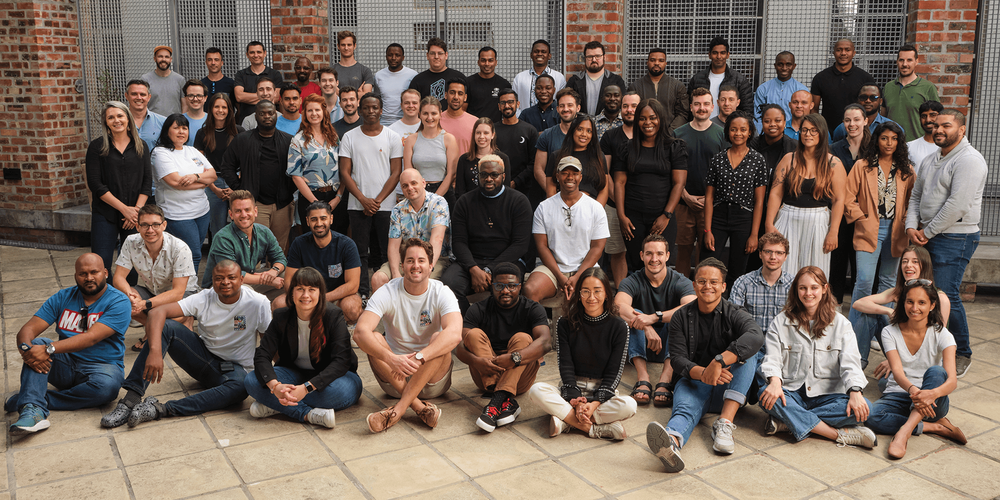Stitch has announced a $25 million raise to scale its enterprise payment solutions product.
South African payments solutions provider Stitch has announced a $25 million Series A extension round. Ribbit Capital led the funding round with involvement from both new and previous investors, including PayPal Ventures, The Raba Partnership, CRE Venture Capital, and 9 Yards Capital.
Stitch launched in February 2021 and has since raised $52 million. The startup enables enterprises to accept, manage and disburse funds through its suite of products. “We’ve seen substantial growth since we emerged from stealth just over two years ago, and we look forward to finding more ways to anticipate and address the needs of the large, global enterprises we serve as the payments landscape continues to evolve,” said Kiaan Pillay, Stitch CEO. According to Pillay, Stitch is on track to process $2 billion in total payment value (TPV) this year and 50 million in payment volume.
Stitch started life as one of the firms that bet that Open Banking would unlock better and more personalised banking services. A previous TechCabal article described Stitch as a startup that “offers data and payments solutions that reduce the effort required for businesses to connect to their users’ financial accounts and enable bank-to-bank payments without leaving the existing app interface.”
The bet at the time was that this would enable fintech use cases like KYC and onboarding, personal and business financial management, lending, wallet top-ups, and e-commerce checkouts. That bet did not pan out as expected.
“There was not a huge amount of traction. I think other markets, especially Western markets have good use over there. But I think it [was] just a bit too early in some of the markets we were targeting,” Pillay conceded. “We started off serving [customers] across this method called pay-by-bank. But in doing so we ended up having almost three distinct areas that we started to work with clients on [and] realised more areas we could offer solutions on,” he added.
As the firm explored new product lines it hit a sweet spot with providing full payment solutions for enterprise-sized businesses in South Africa. So instead of trying to be everything to everyone, the fintech pared back its focus. “At the beginning of this year, we reined in our focus. And we sort of went from being a single method and being paid by the bank to being a full-on enterprise PSP (payment service provider). [The result was that] we ended up serving a lot of enterprises.”
Stitch hopes to restart plans to expand across Africa. The South African company has maintained a small Nigerian operation but held back on aggressively selling in the West African nation in favour of doubling down in South Africa. A renewed expansion push will see it test the waters with enterprises in Kenya, Ghana, Egypt and Nigeria. Stitch also plans to offer its suite of end-to-end payment solutions to US and UK-domiciled companies. The startup also recently launched WigWag, a separate subsidiary specifically serving SMEs.
According to the company, unlike rival payment service providers, Stitch’s go-to-market is built on working closely with enterprise customers to help them fully leverage its API suite to build out payment workflows.
“We only focus on a few enterprises,” said Pillay. PayOS, its flagship product enables enterprise customers to accept payments via pay by bank, debit and credit card, recurring debits, cash and manual bank transfer. One such customer is dLocal, the Uruguayan cross-border payment processor that connects global merchants to emerging markets.
MTN, the South African telco giant which has recently been boosting its fintech appeal after a deal with Mastercard valued its fintech business at more than $5 billion is also a customer of Stitch. “We really go deep with them on the kind of payment solutions we can offer them and obviously along the way, we find that some of the solutions are applicable to other businesses too.”
Stitch has always gone where its clients’ needs have taken it. But it still had to deal with growing competition. “We still want to continue to go deep with all of our existing clients, I think we’ve barely scratched the surface in ways that we can work with them. We’re really excited that we do significant amounts of volume and scale to the existing customers, but it really is only a sliver of their total volume.” Pillay concluded.
Have you got your tickets to TechCabal’s Moonshot Conference? Click here to do so now!




















